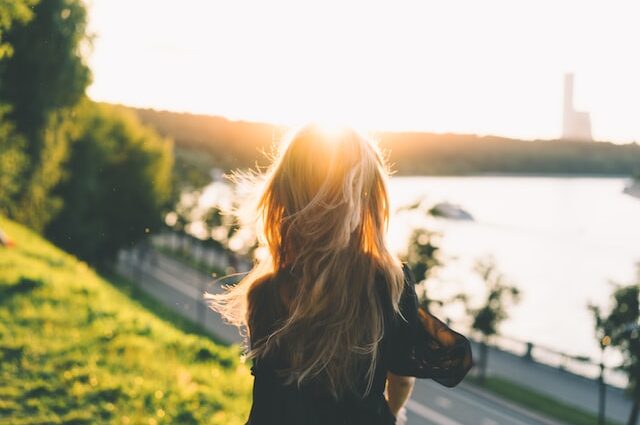Good sleep is essential to good health. I’ve written about this before, but I’m constantly learning and experimenting with new approaches to improving sleep, with positive results. Here are some informative updates.
Light
Getting outside and looking toward the morning sun will wake you up. It reduces melatonin (a hormone that sets off the sleep process), and adenosine (the hormone that makes you sleepy), making you feel more alert, and setting your body clock for the day, leading to a better sleep at night. The time required to get the amount of light you need is dependent on weather conditions: 10 minutes on a sunny morning, up to 20 minutes on a cloudy day. Going outdoors as the sun is setting also assists your body clock; your brain can tell the difference between morning light and evening twilight, and will further support your body clock for sleep. If you wear glasses for sight, having them on will not be an issue, but if it is safe, remove your sunglasses; remember never to look directly at the sun. Note that light viewed from inside through a window, or in your car driving is not adequate to get a measurable improvement in your sleep.
Coffee
Drinking coffee in the afternoon negatively impacts your sleep. For those who drink a coffee first thing in the morning and experience a mid-afternoon slump, delaying your morning coffee for 90 minutes after you wake up can reduce the afternoon slump.
Keeping Cool
Keeping your sleep environment cool and dark supports quality sleep. If you’re feeling hot in bed, but not enough to remove the bedding covers completely, there are 3 areas of the body that allow you to cool down most efficiently: the palms of the hands, the soles of the feet, and the areas of the face around the eyes. So, simply stick your hands and feet out from under the covers. If you’re still too warm and you use a sleep mask to eliminate light, you might benefit from removing it in this instance; it’s a continual experiment to work out what works best for you on balance from night to night.
Non-Sleep Deep Rest (NSDR)
NSDR is a protocol which can help reduce adenosine, the hormone that makes you feel sleepy. The protocol takes about 10 minutes, and can get you through the afternoon slump, or even help you fall asleep if you are having trouble drifting off at night. I have been using the protocol from Dr Andrew Huberman, which you can find here.
Grounding
There are conflicting opinions on the topic of grounding (aka earthing) and its effect on sleep. Many people believe sleeping on an earthing mat or having an earthing pillowcase can improve your sleep, and have other health benefits related to lowering inflammation. Whilst there is minimal research available, I’ve been experimenting with an earthing pillowcase for over a month. According to the data collected by my Ōura Ring, I’m sleeping better and my heart rate variability has improved. Whether it’s the earthing pillowcase, the placebo effect, or a coincidence, I’m enjoying the improvements regardless.
It’s important to remember not everyone will benefit from all the health recommendations they hear about. The research may show that most people benefit from a particular health practice, but most people isn’t the same as everyone, and there are almost always outliers. Avoiding highly processed food, getting good quality sleep, managing your stress and exercising will improve your health, but which aspects of those practices will work for you is individual. That’s the benefit of working with a certified health coach, who treats each person as an individual, and allows for experimentation with the changes you want to make, working out which ones work for you and how to best incorporate these practices your life in a sustainable way. There is no one size fits all, but there is a way if you are willing to do the work.
Quality sleep is important for good health. If you’re experiencing challenge with getting the recommended 7-9 hours of sleep a night, experiment with the above tips, check out my previous article on sleep, the free Improve Your Sleep eBook, or get in touch to discuss whether health coaching can support your needs.
Resources:
- Huberman Lab Toolkit for Sleep – morning light, 90-minute coffee delay, keeping cool
- NSDR Protocol
- Biohacking Your Ancestral Lifestyle, with Ben Greenfield on Revolution Health Radio with Chris Kresser – grounding/earthing




